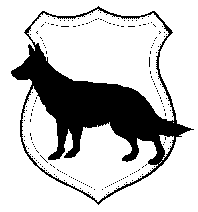

The United States Supreme Court has long recognized that a "sniff" for drugs by a well-trained dog does not require a search warrant. In United States v. Place (1983), a drug-detection dog alerted to the defendant's luggage; a search warrant was obtained, and a large quantity of narcotics was found inside. Although the government lost its case against Mr. Place for other reasons, the Supreme Court specifically ruled that the sniff by the drug dog did not violate the defendant's constitutional rights. Because a canine sniff does not require luggage to be opened, it is not the same as a police officer rummaging through the private contents of a person's suitcase; items which are not contraband will remain hidden from public view, and only the presence of illegal drugs will be detected.
However, once a dog alerts to a package, most courts agree that the alert is at least as reliable as many other sources of information towards establishing probable cause; it is certainly reliable enough to create a fair probability that there is contraband present. In the case of vehicle stops, an alert by a well-trained drug dog is sufficient to justify a search.
The use of drug dogs after routine traffic stops has been especially productive. In Whren v. United States (1996), the U.S. Supreme Court ruled that so-called "pretextual" traffic stops do not violate the Fourth Amendment, so long as there is probable cause to believe that even a minor traffic violation has occurred; this is true even though the traffic stop was also made to confirm a hunch that drugs might be present. (See Crime and Punishment, July, 1996). While a motorist is looking for a driver's license and registration documents, and while the officer is awaiting a license status or warrant check, a drug dog and his handler may approach and walk around the vehicle. If the dog detects drug odors coming from the vehicle, that is not a search; the canine sniff is much less intrusive than the officer rummaging through the contents of the vehicle, and its only purpose is to disclose the presence or absence of narcotics. Then, if the dog alerts, the officer has probable cause to conduct a bumper-to-bumper search of the vehicle.
Of course, an officer can always ask for the motorist's consent to search the vehicle. While the Ohio Supreme Court once claimed that consent was less than voluntary if it was requested before the end of the traffic stop, the United States Supreme Court, in Ohio v. Robinette (1996), reversed that decision and ruled that a suspect can voluntarily consent to a search without being told that he or she was free to go. (See Crime and Punishment, January, 1997). So even if a drug dog provides probable cause to perform a full search of a vehicle, it never hurts for an officer to ask for consent.
A stopped vehicle's passengers may create another issue. In Maryland v. Wilson (1997), the Supreme Court ruled that passengers may be ordered out of a vehicle pending the completion of a traffic stop. (See Crime and Punishment, April, 1997). Removal of the passengers does not affect the dog's opportunity to inspect the vehicle, but using the dog to sniff individual passengers creates additional constitutional issues and should not be attempted.
Drug dogs have also become useful in school searches and have been used in the schools of Wayne County. When the dog sniffs student lockers and automobiles parked in the public parking lots, there is no "search" that would be protected under the Fourth Amendment. Once again, however, the use of a dog to sniff individual students can present different problems and should be avoided.
In summary, a drug dog has a right to be anywhere his police handler has a right to be. Because some drug dogs receive additional training in crowd handling and officer safety, they can also accompany officers on patrol, including walks through public parking lots. An alert by the dog, even to a vehicle parked in a public place, is sufficient probable cause to justify a search of that vehicle. To paraphrase the old adage: a dog can be a cop's best friend!